Content Warning: The following article contains discussions of suicide and suicidal ideation.
Westerns like 1883 are often revered for characters, storylines, and cinematography that transforms the beauty of the Wild West into a majestic landscape that almost borders on otherworldly. Walking the line between the legendary narratives of the frontier and the brutal realities of the people who lived them, the prequel series to Paramount+’s hit Yellowstone finds its center with dialogue that is poetic, savage, and honest.
The best quotes of the series vacillate between beautifully transcendent narration from Isabel May’s Elsa Dutton to lines as sharp as a cavalry sword from Sam Elliot’s grizzled wagon boss, Shea Brennan.
Elsa Dutton
“Like God Decided To Light This Day With Candles, I Could See All Of Texas. It Was The Most Beautiful Thing I Had Ever Seen.”
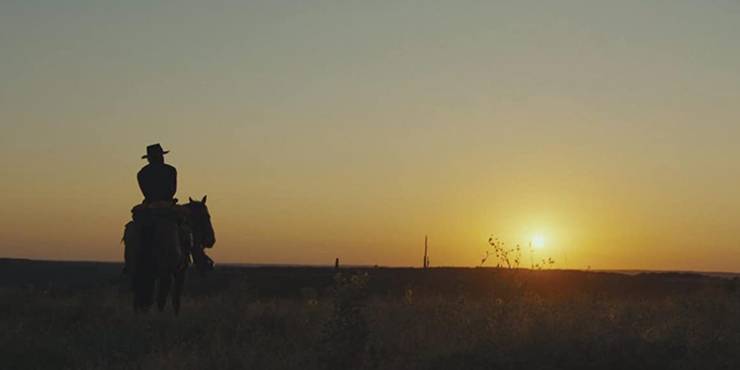
For Elsa Dutton, the journey to Oregon promises new experiences and the chance to leave the carefully constructed confines of polite society behind. Coming from an area of Tennessee with trees so tall they prevented her from ever seeing a simple sunset, the vast expanse of the Great Plains becomes a tantalizing invitation to reckless adventure.
Her dulcet narration often conveys the poetry of her natural surroundings, and after driving a herd of cattle with her father through the middle of Texas, she can’t help but be overwhelmed with love for the Lone Star State. Phrases like “God decided to light this day with candles” aren’t just beautiful expressions meant to reflect Elsa’s faith; they highlight her spiritualism, which as the series progresses becomes more and more tied to the land itself.
Shea Dutton
“The World Can Open Up And Eat Me. I Don’t Give A S**t.”
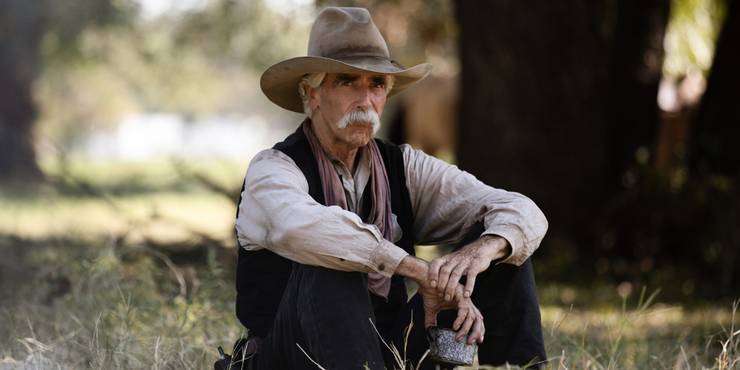
Meeting the character of Shea Brennan is an uncomfortable experience; he’s just burned down his family’s home with his wife and child inside. Long since expired from cholera, he was forced to reverently carry their bodies upstairs and, after saying his final goodbyes, reduce his entire world to ash. Later, he puts a pistol in his mouth with the hopes of joining them, but can’t seem to pull the trigger.
The trauma of that day, combined with his time spent as a Union officer in the Civil War, has changed him into a man living on the edge with very little to lose. He’s gruff with the pioneers of the wagon train, many of them immigrants who know nothing about surviving in the frontier, and doesn’t know how to accept the gentle affection of women. But the fortitude of others along the journey — especially the immigrants — seems to inspire Shea and give him a reason for living.
Thomas
“When there’s two leaders there’s no leader.”
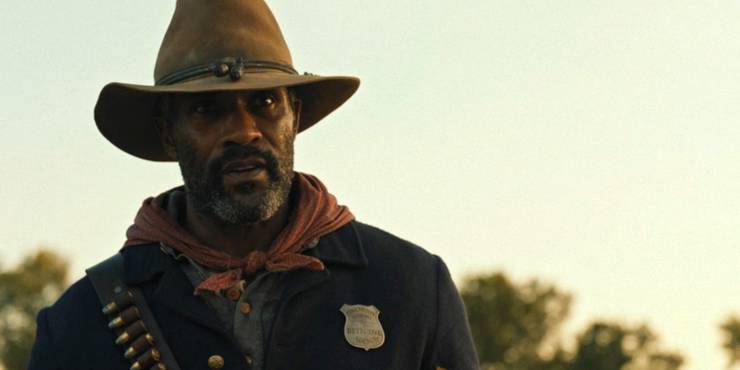
Shea’s friend and confidante is Thomas, a fellow veteran of the Civil War who joins him on the journey to Oregon and prevents Shea from becoming too obstreperous. When Shea butts heads with James Dutton, Thomas warns him that the rest of the wagon train needs to respect him or all hope will be lost for them reaching Oregon alive.
Observant and shrewd, Thomas often behaves as Shea’s conscience, parsing out one-liners like this that make a lot of sense in the moment, if only Shea would heed them. Thomas recognizes that allowing Dutton to usurp Shea as the authority figure in front of everyone isn’t just demoralizing but dangerous.
Shea Dutton
“I’m A Man Looking For A Reason. Do You Want To Be That Reason?”
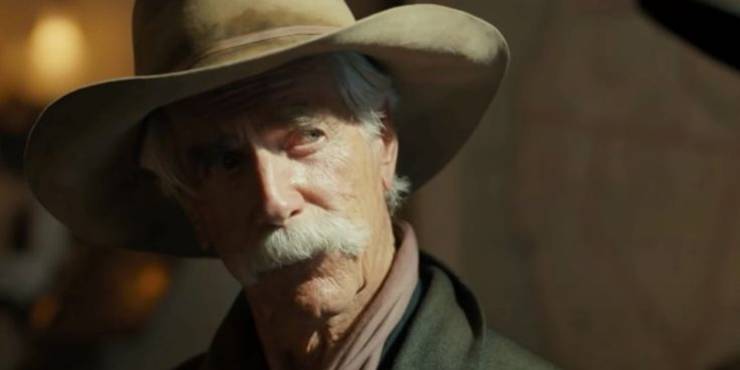
Plagued by the death of his wife and daughter, Shea is a man who welcomes death. It’s one of the only things that drive him to lead an enormous wagon train from Fort Worth, Texas all the way to Oregon at his age, other than seeing the state one last time before it gets completely settled.
When one of the immigrant men confronts him about his leadership, Shea challenges the man to a duel in front of everyone, going so far as to hold his hands up to give the man an easier shot. Instead of emboldening the man, Shea’s brazen defiance of death intimidates him. Only Thomas knows that Shea’s guilt fuels a death wish that often makes him combative, looking for someone who will use their weapon on him and take him out of his misery.
Elsa Dutton
“I Knew Nothing Of The Horror That Hides In Freedom’s Shadow.”
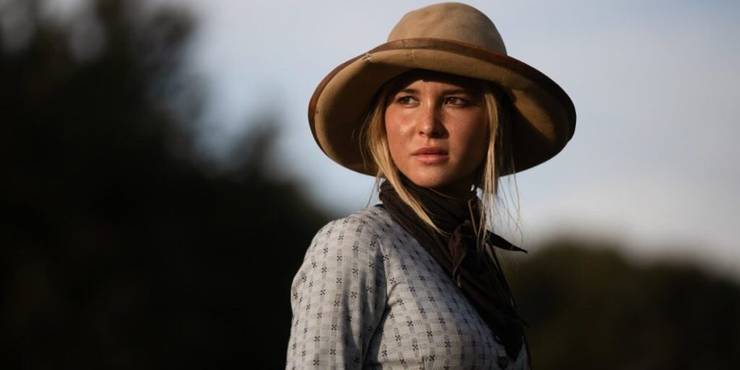
After witnessing settlers die from dysentery, rattlesnake bites, and river crossings like something out of a Western horror movie, the hopeful lens with which Elsa sees the trek starts to lose its rose-colored luster. With danger lurking around every corner, she begins to understand the true price of freedom.
Seeing her cousin get shot in the back right in front of her, losing her Aunt Claire to suicide, and Ennis’s confrontation with the bandits start putting the journey’s cost into perspective for Elsa. Suddenly the people she spent so much time with are gone, with only luck and chance setting her fate apart from theirs.
Margaret Dutton
“Wherever We’re Going, It Better Be Paradise ‘Cause It’s Costing Us A Daughter. And If You Ask Me, It’s A S**tty Trade.”
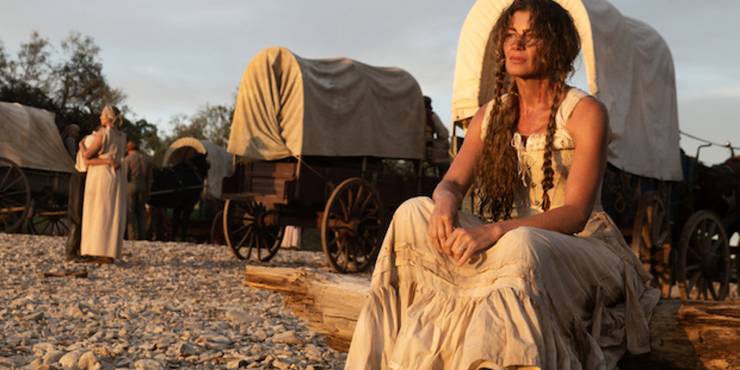
At the beginning of the series, fans see Margaret Dutton clashing with her daughter Elsa over matters of independence and ladylike behavior, which becomes an even more uphill battle when Elsa starts learning to drive cattle. Margaret starts to resent her husband James for making the family travel to Oregon and encouraging their daughter’s sudden interest in cowboy activities.
Watching her daughter become someone she can’t relate to is heartbreaking for Margaret, who struggles with issues of identity herself. Her only hope is to realize that when she stops projecting onto Elsa the societal regulations she forces on herself, they might have a chance at a positive mother-daughter relationship. Besides, Margaret has already forgotten more than Elsa will ever know about horses.
Elsa Dutton
“Freedom. To Most, It Is An Idea, An Abstract Thought That Pertains To Control. That’s Not Freedom. That’s Independence. Freedom Is Riding Wild Over Untamed Land With No Notion Any Moment Exists Beyond The One You’re Living.”
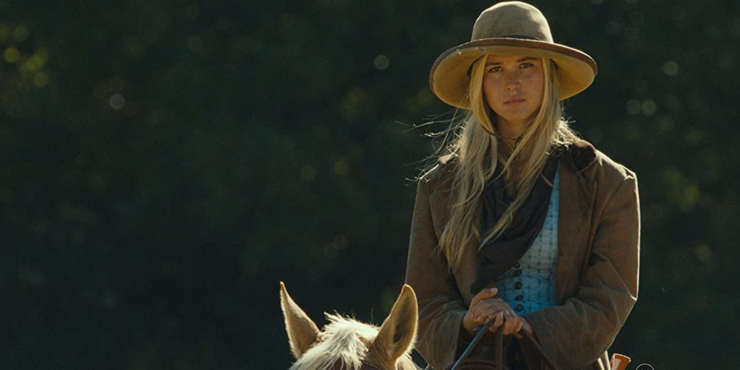
The reason so many pioneers were willing to make perilous treks across the American West was the chance to better the opportunities available to themselves and their families. The untamed land was like a siren song to them, beckoning them with bounties untold, especially immigrants who lived in European countries that had long since been developed and settled.
While she is a pioneer, Elsa also adopts the identity of a cowboy, and through rounding up wild cattle and guiding a herd, she begins to realize that her life’s pursuit must always involve the sort of freedom she experiences on the way to Oregon.
James Dutton
“When You Kill A Thing, It Makes You A Little Less Man, A Little More Animal. Now We Try To Find The Balance Between Them. That’s All Life Is.”
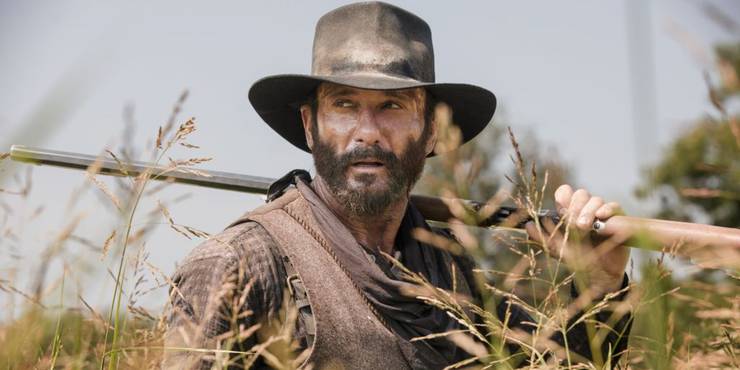
James Dutton has done a lot of killing in his day. As a captain for the Confederacy, he has witnessed — and orchestrated — the horrors of war and sent thousands of young men to their deaths. To reconcile this, he has adopted a creed to guide his moral compass, which he passes on to his son John when they go for a hunt. John helps his father kill a buck, and James instructs him to “thank” the deer for giving its life so that they might live.
Though John doesn’t fully understand his father’s sentiment — he’s only five years old — it’s important for him to hear it. James Dutton doesn’t talk to either of his children like they’re children but instead respects them enough to speak to them like adults, including imparting more complicated life lessons than one would expect.
Elsa Dutton
“The World Doesn’t Care If You Die. It Won’t Listen To Your Screams. If You Bleed On The Ground, The Ground Will Drink It. It Doesn’t Care That You’re Cut.”
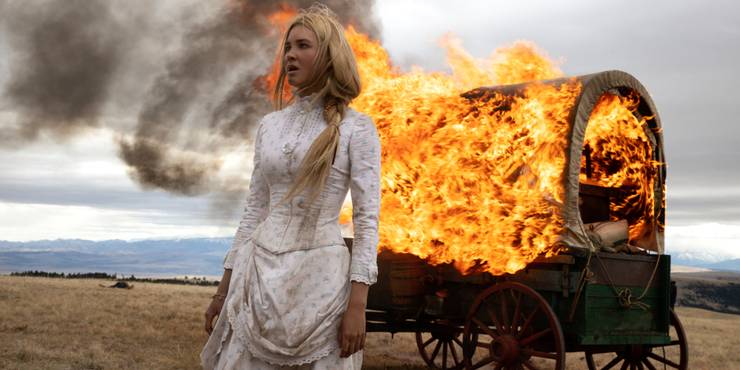
The harsh realities of being part of a wagon train that will take months to reach its destination weigh heavily on Elsa in the middle of the series, and she begins to realize how little the land is concerned with the settlers that rattle along on top of it. In the lawless areas that they frequent, bad water and starvation are joined by the threat of being killed by bandits and Comanches.
This lyrical way of explaining such a cold fact of life reflects Elsa’s burgeoning maturity and mirrors her loss of innocence. Already the girlish enthusiasm she had in the beginning of the series is beginning to feel like a sacrifice to the land.
Shea Brennan
“That Little Piece Of Him Is Still Inside You, And You Can Use Your Eyes To See The World. So I’m Gonna Take My Wife To The Ocean And I’m Going To Sit On A Beach And Let Her See It.”
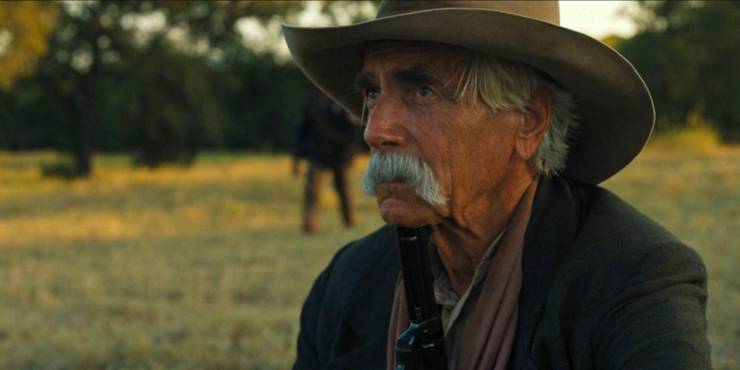
After suffering an enormous loss, Elsa becomes removed from the rest of the wagon train, uninterested in the things that once brought her joy. Recognizing her grief-fueled detachment, Shea shares a story told to him by an Apache scout that gives him hope: “When you love somebody you trade souls with them. They get a piece of yours and you get a piece of theirs. But when your love dies, a little piece of you dies with them. That’s why it hurts so bad.”
Not only is the scene beautifully acted and its sentiment touchingly captured, it presents a new way of looking at the death of a loved one, and encouragement for those left behind. They can still live their lives celebrating everything around them on behalf of their dearly departed.
About The Author




